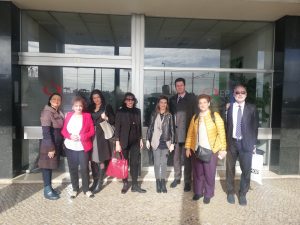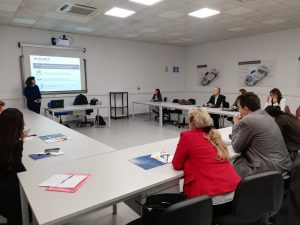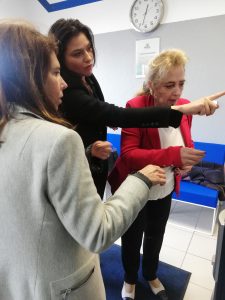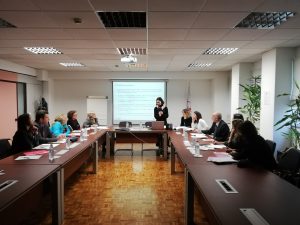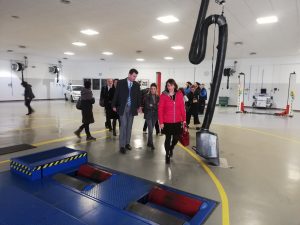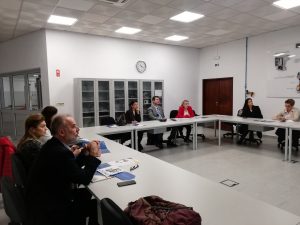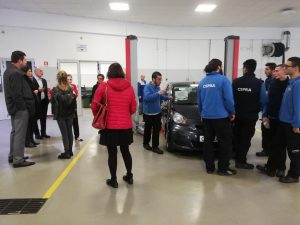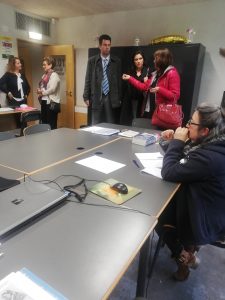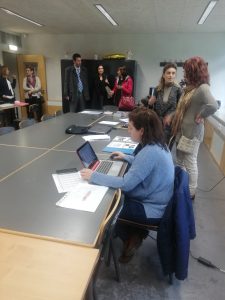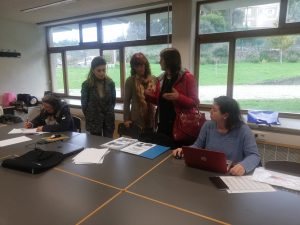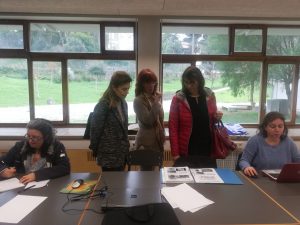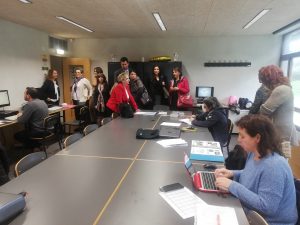STUDY VISIT: PORTUGUESE QUALIFICATIONS FRAMEWORK AND THE MODEL OF PRIOR LEARNING RECOGNITION – EXAMPLE OF BEST PRACTICE IN THE EUROPEAN UNION
November 29th, 2019
By the end of November 2019, a group of six participants – representatives of the Ministry of Education, Science and Technological Development, the National Council for Education and the Qualifications Agency visited Lisbon, and were introduced to the Portuguese educational system, in particular, their national qualifications framework and the system of prior learning recognition. The visit was organised within the project „Development of an Integrated National Qualifications System in Serbia“, supported by the Ministry of Education, Science and Technological Development, for the purpose of establishing the national qualifications framework.
The aim of the visit was to introduce the participants to the legislative and institutional aspects of the national qualifications framework in one of the EU member states, and also to obtain an insight into the system of prior learning recognition in Portugal, as an example of best practice: to exchange experiences with Portuguese colleagues and also to learn about possible similarities or differences between the concepts of prior learning recognition, to be piloted in Serbia in the next year.
On the first day of the study visit, the participants visited the National Agency for Qualification and Vocational Education (ANQEP). The role of the Agency in the education and training system was presented in a detailed introductory presentation. The Agency operates under the two ministries – the Ministry of Education and the Ministry of Labour, and the primary task of the Agency is to coordinate the implementation of policies in the field of vocational education and training of young people and adults, as well as to manage the National System of Recognition, Validation and Certification of Competences. In the afternoon session, as planned by the agenda of the visit, the Serbian delegation was introduced to the structures and instruments of the Portuguese Qualifications Framework: the details of the national qualifications system, Qualification Needs Anticipation System, National Catalogue of Qualifications, operations of sector skills councils and Quality Assurance instruments.
During the second day of the visit, the Qualifica programme was presented to the Serbian delegation on the premises of the National Agency for Qualification and Vocational Education. Qualifica programme, which, in accordance with the initial assessments, produced remarkable results, has been in place since 2017. It is based on the Strategy for the improvement of adult education, the improvement of the qualifications structure of the citizens and ensuring higher employability to each individual. The participants were presented with target groups, phases of interventions within the programme, methods for motivating and encouraging the participation of social stakeholders and financing the programme activities. Special attention was given to presenting the national system for the recognition, validation and certification of competences – within which detailed information on methodology, evaluation, monitoring and quality assurance were provided.
The intensive work was completed on the third day of the visit, when the Serbian delegation was given the opportunity to observe the practical implementation of the presented model. First, they visited one of the most prominent training centres for the youth and adults, founded in collaboration with social partners – CEPRA, professional centre for training and certification of experts in automotive industry. During almost 40 years of its existence, this centre had stood out as the focal point of professional training in the automotive industry sector, with around 5000 attendants per year. The representatives of the centre provided a detailed overview of their activities and services they provide, with particular focus on the role in the adult education system and activities implemented within the Qualifica programme, through which the skills acquired throughout life and work experiences are recognized, validated and certified.
In the second part of the day, a visit to school in Sintra was organized; apart from education of the youth, this school is also specialised in the recognition of prior learning and training of adult learners. A team of seven experts in andragogy presented their results with great enthusiasm – from entry evaluations, counselling and guidance of candidates, through trainings fully adapted to adult participants, to the process of recognition and certification of acquired knowledge and quality insurance instruments.
The study visit has enabled the participants to acquire more thorough understanding of, first of all, the differences between educational systems of the two countries, and methods of establishing the national qualifications frameworks. The Portuguese experience in developing and establishing the system of prior learning recognition was particularly significant with regard to additional overview of the model being planned in Serbia and establishing the best practice that might be applied in developing the new concept.
The study visit was organized within the Component 3 of the “Development of an Integrated National Qualifications System in Serbia” project. Future activities will encompass preparations for piloting the process of prior learning recognition in Serbia, planned to be implemented in the first half of 2020.
Apresentação Inglês SNQ_delegação sérvia novembro 2019_final

